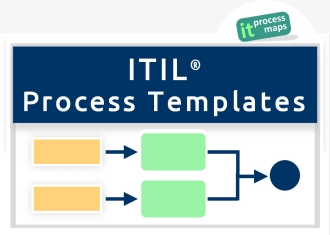ITIL KPIs Service Design: Difference between revisions
No edit summary |
No edit summary |
||
| (5 intermediate revisions by the same user not shown) | |||
| Line 1: | Line 1: | ||
<itpmch><title>ITIL KPIs Service Design | IT Process Wiki</title> | |||
<meta name="keywords" content="itil kpis service design, kpis service design, kpis service design itil" /> | |||
<meta name="description" content="Service Design: The most important ITIL KPIs - ITIL Key Performance Indicators ITIL Service Design." /> | |||
</itpmch> | |||
<imagemap> | |||
Image:ITIL-Wiki-share.jpg|right|share this page|141px | |||
rect 55 0 99 36 [https://www.linkedin.com/shareArticle?url=https%3A%2F%2Fwiki.en.it-processmaps.com%2Findex.php%2FITIL_KPIs_Service_Design&hl=en_US&source=IT%20Process%20Wiki share this page on LinkedIn] | |||
rect 97 0 141 36 [https://twitter.com/intent/tweet?url=https%3A%2F%2Fwiki.en.it-processmaps.com%2Findex.php%2FITIL_KPIs_Service_Design&text=%23ITILwiki%20%7C%20ITIL%20Key%20Performance%20Indicators%20(KPIs)%20Service%20Design%0A%E2%96%BA&lang=en&via=itprocessmaps share this page on Twitter] | |||
desc none | |||
</imagemap> | |||
<imagemap> | |||
Image:ITIL-Wiki-de-es.jpg|DE - ES - ITIL KPI's Service Design|163px | |||
rect 81 0 114 36 [https://wiki.de.it-processmaps.com/index.php/ITIL-Kennzahlen_Service_Design diese Seite auf Deutsch] | |||
rect 115 0 163 36 [https://wiki.es.it-processmaps.com/index.php/KPIs_ITIL_-_Dise%C3%B1o_del_Servicio esta página en español] | |||
desc none | |||
</imagemap> | |||
<br style="clear:both;"/> | |||
Key Performance Indicators (KPIs) for the [[ITIL Service Design|Service Design processes]] from the [https://en.it-processmaps.com/products/itil-process-map.html ITIL Process Map]. | |||
→ Back to: '''[[ITIL Key Performance Indicators|ITIL Key Performance Indicators]]''' | |||
<p> </p> | |||
__TOC__ | |||
==ITIL KPIs Service Level Management== | |||
{| | {| class="wikitable" style="background: white;" | ||
|- | |- | ||
! | !style="background:#013b5e; color:#ffffff; width:35%" | Key Performance Indicator (KPI) | ||
! | !style="background:#facc6a; width:65%" | Definition | ||
|- | |- | ||
| | |Services covered by SLAs | ||
|Number of | | | ||
* Number of services covered by SLAs | |||
|- | |- | ||
| | |Services covered by OLAs/ UCs | ||
|Number of | | | ||
* Number of Services where SLAs are backed up by corresponding OLAs/ UCs | |||
|- | |- | ||
|Monitored SLAs | |Monitored SLAs | ||
|Number of monitored SLAs, where weak-spots and counter-measures are reported | | | ||
* Number of monitored Services/ SLAs, where weak-spots and counter-measures are reported | |||
|- | |- | ||
|SLAs under Review | |SLAs under Review | ||
|Number of SLAs which are regularly reviewed | | | ||
* Number of Services/ SLAs which are regularly reviewed | |||
|- | |- | ||
|Fulfilment of Service Levels | |Fulfilment of Service Levels | ||
|Number of | | | ||
* Number of Services/ SLAs where the agreed service levels are fulfilled | |||
|- | |- | ||
|Number of | |Number of Service Issues | ||
|Number of | | | ||
* Number of issues in the service provision, which are identified and addressed in an improvement plan | |||
|} | |} | ||
<p> </p> | |||
<p> </p> | |||
==ITIL KPIs Capacity Management== | |||
{| class="wikitable" style="background: white;" | |||
|- | |||
!style="background:#013b5e; color:#ffffff; width:35%" | Key Performance Indicator (KPI) | |||
!style="background:#facc6a; width:65%" | Definition | |||
|- | |||
|Incidents due to Capacity Shortages | |||
| | |||
* Number of incidents occurring because of insufficient service or component capacity | |||
|- | |||
|Exactness of Capacity Forecast | |||
| | |||
* Deviation of the predicted capacity development from actual course | |||
|- | |||
|Capacity Adjustments | |||
| | |||
* Number of adjustments to service and component capacities due to changing demand | |||
|- | |||
|Unplanned Capacity Adjustments | |||
| | |||
* Number of unplanned increases to service or component capacity as result of capacity bottlenecks | |||
|- | |||
|Resolution Time of Capacity Shortage | |||
| | |||
* Resolution time for identified capacity bottlenecks | |||
|- | |||
|Capacity Reserves | |||
| | |||
* Percentage of capacity reserves at times of normal and maximum demand | |||
|- | |||
|Percentage of Capacity Monitoring | |||
| | |||
* Percentage of services and infrastructure components under capacity monitoring | |||
|} | |||
<p> </p> | |||
<p> </p> | |||
==ITIL KPIs Availability Management== | |||
{| | {| class="wikitable" style="background: white;" | ||
|- | |- | ||
! | !style="background:#013b5e; color:#ffffff; width:35%" | Key Performance Indicator (KPI) | ||
! | !style="background:#facc6a; width:65%" | Definition | ||
|- | |- | ||
|Service Availability | |Service Availability | ||
|Availability of IT Services relative to the availability agreed in SLAs | | | ||
* Availability of IT Services relative to the availability agreed in SLAs and OLAs | |||
|- | |||
|Number of Service Interruptions | |||
| | |||
* Number of service interruptions | |||
|- | |- | ||
|Duration of Service Interruptions | |Duration of Service Interruptions | ||
|Average duration of interruptions | | | ||
* Average duration of service interruptions | |||
|- | |- | ||
|Availability Monitoring | |Availability Monitoring | ||
|Percentage of | | | ||
* Percentage of services and infrastructure components under availability monitoring | |||
|- | |- | ||
|Availability Measures | |Availability Measures | ||
|Number of implemented measures with the objective of increasing availability | | | ||
* Number of implemented measures with the objective of increasing availability | |||
|} | |} | ||
<p> </p> | |||
<p> </p> | |||
==ITIL KPIs IT Service Continuity Management== | |||
=== | {| class="wikitable" style="background: white;" | ||
|- | |||
!style="background:#013b5e; color:#ffffff; width:35%" | Key Performance Indicator (KPI) | |||
!style="background:#facc6a; width:65%" | Definition | |||
|- | |||
|Business Processes with Continuity Agreements | |||
| | |||
* Percentage of business processes which are covered by explicit service continuity targets | |||
|- | |||
|Gaps in Disaster Preparation | |||
| | |||
* Number of identified gaps in the preparation for disaster events (major threats without any defined counter measures) | |||
|- | |||
|Implementation Duration | |||
| | |||
* Duration from the identification of of a disaster-related risk to the implementation of a suitable continuity mechanism | |||
|- | |||
|Number of Disaster Practices | |||
| | |||
* Number of disaster practices actually carried out | |||
|- | |||
|Number of identified Shortcomings during Disaster Practices | |||
| | |||
* Number of identified shortcomings in the preparation for disaster events which are identified during practices | |||
|} | |||
<p> </p> | |||
<p> </p> | |||
{| | ==ITIL KPIs Information Security Management== | ||
{| class="wikitable" style="background: white;" | |||
|- | |- | ||
! | !style="background:#013b5e; color:#ffffff; width:35%" | Key Performance Indicator (KPI) | ||
! | !style="background:#facc6a; width:65%" | Definition | ||
|- | |- | ||
| | |Number of implemented Preventive Measures | ||
|Number of | | | ||
* Number of preventive security measures which were implemented in response to identified security threats | |||
|- | |- | ||
| | |Implementation Duration | ||
| | | | ||
* Duration from the identification of a security threat to the implementation of a suitable counter measure | |||
|- | |- | ||
| | |Number of major Security Incidents | ||
|Number of | | | ||
* Number of identified security incidents, classified by severity category | |||
|- | |- | ||
| | |Number of Security-related Service Downtimes | ||
| | | | ||
* Number of security incidents causing service interruption or reduced availability | |||
|- | |- | ||
| | |Number of Security Tests | ||
| | | | ||
* Number of security tests and trainings carried out | |||
|- | |- | ||
| | |Number of identified Shortcomings during Security Tests | ||
| | | | ||
* Number of identified shortcomings in security mechanisms which were identified during tests | |||
|} | |} | ||
<p> </p> | |||
<p> </p> | |||
==ITIL KPIs Supplier Management== | |||
{| class="wikitable" style="background: white;" | |||
{| | |||
|- | |- | ||
| | !style="background:#013b5e; color:#ffffff; width:35%" | Key Performance Indicator (KPI) | ||
| | !style="background:#facc6a; width:65%" | Definition | ||
|- | |- | ||
| | |Number of agreed UCs | ||
| | | | ||
* Percentage of contracts underpinned by UCs | |||
|- | |- | ||
| | |Number of Contract Reviews | ||
| | | | ||
* Number of conducted contract and supplier reviews | |||
|- | |- | ||
|Number of | |Number of identified Contract Breaches | ||
|Number of | | | ||
* Number of contractual obligations which were not fulfilled by suppliers (identified during contract reviews) | |||
|} | |} | ||
<p> </p> | |||
==[ Infobox ]== | |||
<html><table class="wikitable"> | |||
<tr> | |||
<td>Link to this page:</td> | |||
<td><a itemprop="url" href="https://wiki.en.it-processmaps.com/index.php/ITIL_KPIs_Service_Design">https://wiki.en.it-processmaps.com/index.php/ITIL_KPIs_Service_Design</a></td> | |||
</tr> | |||
<tr> | |||
<td>Languages:</td> | |||
<td><span itemprop="inLanguage" content="en">English</span> | <span><a itemprop="citation" class="external text" href="https://wiki.de.it-processmaps.com/index.php/ITIL-Kennzahlen_Service_Design">Deutsch</a></span> | <span><a itemprop="citation" class="external text" href="https://wiki.es.it-processmaps.com/index.php/KPIs_ITIL_-_Dise%C3%B1o_del_Servicio">español</a></span></td> | |||
</tr> | |||
<tr> | |||
<td>Author:</td> | |||
<td><span itemprop="author">Andrea Kempter</span>, <span itemprop="creator copyrightHolder publisher">IT Process Maps</span> <a rel="author" href="https://www.linkedin.com/in/andreakempter"><img style="margin:0px 0px 0px 0px;" src="/images/bookmarking/linkedin.png" width="16" height="16" title="By: Andrea Kempter | Profile on LinkedIn" alt="Author: Andrea Kempter, IT Process Maps GbR" /></a></td> | |||
</tr> | |||
</table></html> | |||
<!-- This page is assigned to the following categories: --> | |||
[[Category:ITIL V3|KPIs Service Design]] | |||
[[Category:ITIL 2011|KPIs Service Design]] | |||
[[Category:KPI (ITIL)|Service Design KPIs]] | |||
[[Category:Service Design|KPIs Service Design]] | |||
<!-- --- --> | |||
Latest revision as of 18:26, 15 June 2019


Key Performance Indicators (KPIs) for the Service Design processes from the ITIL Process Map.
→ Back to: ITIL Key Performance Indicators
ITIL KPIs Service Level Management
| Key Performance Indicator (KPI) | Definition |
|---|---|
| Services covered by SLAs |
|
| Services covered by OLAs/ UCs |
|
| Monitored SLAs |
|
| SLAs under Review |
|
| Fulfilment of Service Levels |
|
| Number of Service Issues |
|
ITIL KPIs Capacity Management
| Key Performance Indicator (KPI) | Definition |
|---|---|
| Incidents due to Capacity Shortages |
|
| Exactness of Capacity Forecast |
|
| Capacity Adjustments |
|
| Unplanned Capacity Adjustments |
|
| Resolution Time of Capacity Shortage |
|
| Capacity Reserves |
|
| Percentage of Capacity Monitoring |
|
ITIL KPIs Availability Management
| Key Performance Indicator (KPI) | Definition |
|---|---|
| Service Availability |
|
| Number of Service Interruptions |
|
| Duration of Service Interruptions |
|
| Availability Monitoring |
|
| Availability Measures |
|
ITIL KPIs IT Service Continuity Management
| Key Performance Indicator (KPI) | Definition |
|---|---|
| Business Processes with Continuity Agreements |
|
| Gaps in Disaster Preparation |
|
| Implementation Duration |
|
| Number of Disaster Practices |
|
| Number of identified Shortcomings during Disaster Practices |
|
ITIL KPIs Information Security Management
| Key Performance Indicator (KPI) | Definition |
|---|---|
| Number of implemented Preventive Measures |
|
| Implementation Duration |
|
| Number of major Security Incidents |
|
| Number of Security-related Service Downtimes |
|
| Number of Security Tests |
|
| Number of identified Shortcomings during Security Tests |
|
ITIL KPIs Supplier Management
| Key Performance Indicator (KPI) | Definition |
|---|---|
| Number of agreed UCs |
|
| Number of Contract Reviews |
|
| Number of identified Contract Breaches |
|
[ Infobox ]
| Link to this page: | https://wiki.en.it-processmaps.com/index.php/ITIL_KPIs_Service_Design |
| Languages: | English | Deutsch | español |
| Author: | Andrea Kempter, IT Process Maps |






